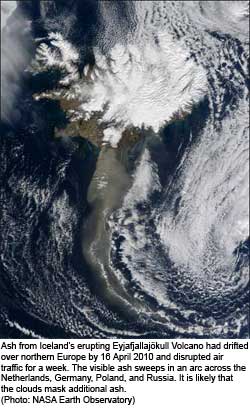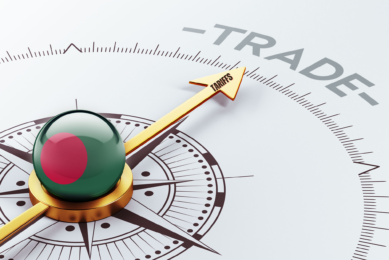VIV Europe 2010 made the best out of a turbulent situation

The Icelandic volcanic ashes did not only seriously disrupt the air traffic over Europe. It also placed VIV Europe 2010, from 20 – 22 April, in a turbulent situation, as many of the expected visitors – especially from the Middle East, Russia and Asia – were depending on air traffic to reach Holland.
By Dick Ziggers
Despite the no-fly zone problems over Western Europe, some 10,000 visitors from 96 countries all over the world made it to the Jaarbeurs Utrecht venue to meet with 85% of the total expected field of exhibitors. “VNU Exhibitions’ director of international exhibitions Gerard Leeuwenburgh said: “There is only one expression to describe the situation: force majeure. On Thursday afternoon Schiphol Airport closed when all the show freight had arrived and the build-up of the exhibition was already in full swing. From that moment on we monitored the air traffic situation by the minute. 85% of the exhibitors had already reached VIV Europe over the weekend,” he said. “We knew then that we would face decline in the number of visitors from the Middle East, Asia, Eastern-Europe and Latin America as well as from the UK and some European countries further away. However, it was not possible to postpone or reschedule the exhibition at this last-minute stage. It was simply too late. Build-up was on schedule, all arrangements had been made.” The worldwide media in the industry helped spread the news that the show would continue. “Of course our customers deserved our major efforts to inform the industry professionals and call for their attendance. We had great assistance from the industry media in doing so.”
Heart-warming efforts
Many visitors from outside the Netherlands made the effort to come to Utrecht. People travelling over long distances by car, bus or train. Guests from Israel took a plane to Italy and then travelled all the way through Europe by railway, finally arriving in Utrecht. Other exhibitors and visitors came by car or buses from Italy, Turkey, Ukraine and Lebanon. A group of Chinese colleagues of De Heus Koudijs were stranded in Warsaw. De Heus immediately arranged bus transport to Holland. CID Lines welcomed a group of guests from one of South Africa’s largest pig farms Number 2 Piggeries who had travelled from Port Elizabeth to Cape Town and then had a delay of almost 4 days in Johannesburg. Hakon Standal of NIR online analysing equipment supplier Prediktor came all the way by car from Norway. “We had a booth here and it was our first time at VIV so I took the opportunity. It was a long drive, but I made it,” he said.
Feed tech pavilion
VIV for the first time organised a special area for companies that manufacture and market machinery and equipment for the feed industry. This Feed tech pavilion (not related to our previous magazine Feed Tech) was well occupied with exhibitors from the Netherlands (a.o. Van Aarsen, Ottevanger, Wijnveen, PTN, CPM Europe, Tijdhof, DMT, KSE), Austria (Andritz), Germany (Amandus Kahl), China (Muyang) and Switzerland (Buhler). Of course the exhibitors had expected a larger audience, but also said they now had ‘quality time’ to talk to (potential) customers.
Opening conference
The Opening Conference of VIV Europe 2010 focused on long term developments in the industry until 2020. Dirk Jan Kennes of Rabobank International pointed out the quantification of the long term developments. Up to 2020, 70% of the growth of world meat demand will come from Asia. For inputs for feed, Asia will have to rely more and more on the import of the Americas, while e.g. China will probably produce its feed and other products locally with input from various crops from the Americas.
Professor John Hodges’ message stressed the fact that world agricultural and food production should be produced in a sustainable manner. The final speaker Ms. Gerda Verburg, the Dutch Minister of Agriculture, Nature and Food Quality, also stressed the importance of sustainability. “Sustainability is at the root of a better world. Sustainable forms of agriculture can prevent us from turning into the ultimate consumption society.” Verburg listed a number of future focused developments already available in the Netherlands, such as improved housing for poultry and pigs, renewable energy and recovery of fertiliser from manure. Chairman Professor Ruud Huirne of Wageningen University summarised the speakers and stressed the importance of increasing agricultural productivity, with the emphasis on sustainability.
Source: AllAboutFeed Vol 1 no 4, 2010











